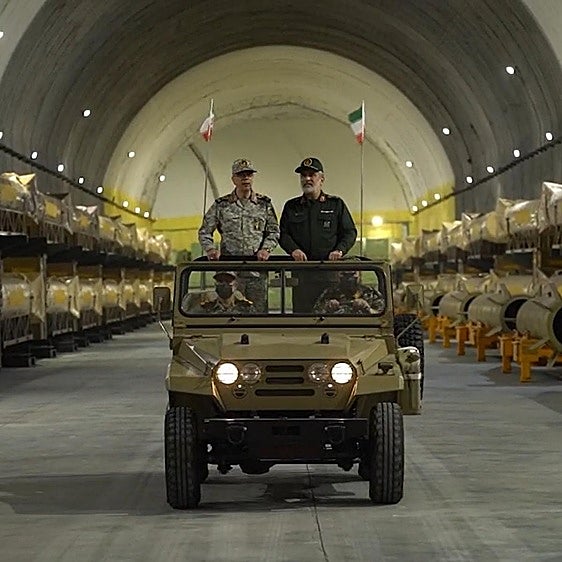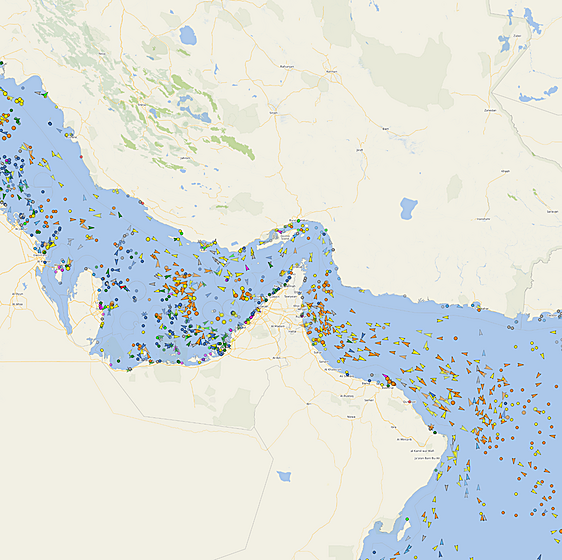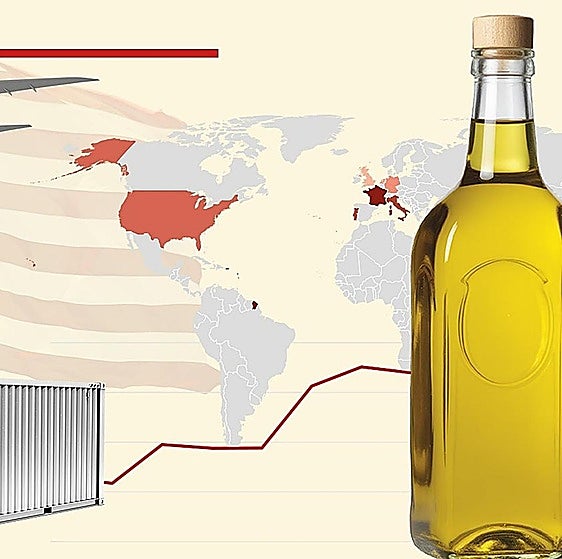When cancer strikes at a young age: 'All I wanted was to live the life of a normal child'
Three stories, three lives. Ainhoa Barco, Patricia Fernández and Felipe Medina were aged between seven and twelve when they were told they had the illness
CRISTINA PINTO
Friday, 17 February 2023
'When someone said the word cancer to me for the first time, the first thing that came into my head was that I wasn't going to be here anymore, that I was going to die."
That was Ainhoa Barco's reaction when she was diagnosed with a mixed embryonal germinoma brain tumour when she was 12 years old. Her parents had told her she had a fatty lump and she would need an operation to remove it but when she explained this to a friend, she said, "Oh, so you've got cancer, then," Ainhoa recalls.
"I asked myself "What?! What is this? What's happening to me?" At first I was angry with the world. I didn't want to play or do anything. It was hard for me to open up about it, but then I realised that I just wanted to get cured and be well again," she says.
Felipe Medina. Age 17: "The worst things for me were not going to school, being in a wheelchair, losing my hair and not being able to do sport"
"I used to wonder why I had this illness when I had never done anything bad to anybody." That was how Patricia Fernández felt when she was diagnosed at the age of seven with a central neurocytoma brain tumour, which by the time she was nine had metastasised throughout the central nervous system. Her mother told her it was like a test she had been given to see how strong she was, "and I thought yes, that's true, this is a test I have been set and I have to accept it," Patricia says.
"At first I couldn't believe it and I didn't even know what it was. I used to ask why it was happening to me. All I could think about was the treatment and that I was going to be shut away in a hospital, suffering," says Felipe Medina, who was diagnosed with non-Hodgkin's T-cell lymphoma when he was 12. "It's like a smack in the face nobody ever prepares you for. I was just a child, and didn't even know what life was all about," he says.
"I spent a lot of time talking with psychologists, with my parents, family and friends and I gradually accepted it, but it is a long, hard process because nobody teaches you how to change your attitude when you're faced with these problems," he says, thinking back to that time.
Past, present and future
These three stories are past, present and future. Ainhoa is 18 now and lives with the remnant of a tumour which remains stable; Patricia is 19 and starts a new course of chemotherapy in a few days' time, and Felipe is 17 and has not received any treatment in the past three years.
These are three stories which need to be heard and understood, from these brave young people who sat down with SUR at the Spanish Association against Cancer in Malaga (AEEC) to mark International Child Cancer Day on 15 February, to talk about that stage of their lives which has so much to do with who they are now and who they will be in the future. It is something that has a lot to do with life, although at times it appears difficult and unfair. Three stories to tell, three lives to give a lesson to the world.
Patricia Fernández was very small - just seven - when the first symptoms of constant vomiting and epileptic fits began. She started having treatments, it all took a long time, she was away from school longer than expected and then it was difficult for this little girl from Fuengirola when she was able to go back. "I was sad because my hair was falling out, because I had got behind at school and I couldn't lead the same life as others of my age. It was hard. The other pupils had started to forget about me and didn't pay any attention to me any more. At school nobody included me in anything. Luckily the hospital had several associations that meant I was with other children in the afternoons," Patricia says, emotionally.
She had more surgery last October and is about to start chemotherapy again. "When you relapse you feel pretty sad and alone," she admits. One of the consequences of her treatment is that she is now 83 per cent disabled.
Felipe and Ainhoa were both diagnosed with cancer when they were 12, a time of complete change in a child's life. "It was a difficult age because of friends and school, and I was just about to move up to secondary school," says Ainhoa Barco, who lives in Guadalmar and studies at Santa Paula.
"Some of the worst things for me were not being able to go to school, being in a wheelchair, losing my hair and not being able to do sport. I used to look in the mirror and think, "this isn't me". I didn't even have the strength to walk but I wanted to carry on with the normal life of a 12-year-old. I couldn't do what I always used to do, see my friends, and I wanted to be like them," says Felipe.
This youngster from Malaga had treatment for nearly two years. "I was in hospital, and could barely move. I tried to go to the bathroom and fell down in the corridor, which is why we decided that I should use a wheelchair some of the time," he says. He has relied on his religious faith more than ever since the treatment. "My father had a friend who gave him a bracelet with the Virgen de la Salud on it when I was in intensive care and he used to pray to her because he felt that it helped me. Praying was my refuge, too," he explains.
No words or actions console someone suffering from this illness at those times. "You really suffer, it consumes you from inside and you don't have any physical or mental strength to deal with it. It is not a nice experience but when you look at it from another perspective you feel proud; you look back at everything you went through, all the crying you did, and you see how different you are now," says Felipe about what it is like to have cancer.
The eyes of these young people show the strength that goes with their words and the courage of a positive mind. "All I wanted was to be cured and be well. Never mind the hair, the injections, whatever... your attitude is what matters. The more you put into getting better, the more you get out of the treatment," says Ainhoa with a slight smile.
They have had a lot of painful experiences on the way, like Patricia, who decided to volunteer with different associations, including the AECC in Malaga, and remembers a lot of companions who are no longer with her.
"I was always with them to give them support. I know that with my history I can help a lot of people. Cancer teaches you to be stronger and value things much more," she says.
Not afraid of dying
"I wasn't afraid of dying because if that is what was going to happen then that's all there is to it, but I was afraid of what consequences there would be if I survived and couldn't live the sort of life I did before. I feel like I have been born again after all this," Felipe says.
This mentality is also summed up in Ainhoa's words: "You have to live because life can end suddenly - you never know what might happen to you. This has taught me how to live and how to enjoy the people around me because you just don't know," she says.
Support of family
As part of the process of looking at the illness in the most positive way, patients have the help of their families, friends, the doctors and, for example, the AECC in Malaga, where these three young people go to talk and get the support and the encouragement they need because, as the AECC says, "this is a path that you travel with company".
There are leisure activities and workshops and they can talk with other children who have cancer, making their routines much more bearable. "The psychologist, Coral, has helped me so much to find who I really am, to say what I think and to feel how I feel," says Ainhoa about Coral García Peláez, the psycho-oncologist who works with them.
"Thanks to the AECC association we have been able to do activities and play games with other children with cancer and that has been good for us, it creates strong bonds," adds Patricia.
Their approach to life has been affected one way or another by cancer and it has even influenced their choice of profession. "Since leaving hospital I have known that I wanted to work in healthcare somehow, as a way of repaying everything that they had given me. I am studying to be an X-ray technician to do mammograms and after that I want to do radiotherapy for cancer treatments," says Ainhoa, who is very excited because she has now started doing her first work experience at the hospital.
"At the moment I'm doing Sciences for the Baccalaureate and then I want to go on to study Medicine because having cancer has made me want to give something back after all they have done for me, and help more people like they helped me," says Felipe, about his plans for the future.
And Patricia is also starting to feel more loved and welcomed thanks to her colleagues on the Hairdressing and Beauty course she is doing, although she is dividing it over several years because of her treatment. "I like it a lot because it is fun to be with the girls, and do their makeup," she says.
Now that years have passed since they were diagnosed and they are taking up their lives again, we asked them what short message they would give to the small children they were when they heard the word cancer applied to themselves. "I would tell her to keep going, that she is on the right track and I am sure she is going to go really far in life," says Ainhoa.
Patricia had also given thought to what she would say to that seven-year-old self: "At that time I wasn't so mature, so I would tell myself that I am a very strong person and I can do anything," she says.
Change in the way of thinking
Felipe's way of thinking has changed. "Now when someone says the word cancer I think about life because what it has done is teach me to live. I would tell my 12-year-old self to trust in destiny, in the process, and learn from everything to the full. I would say he must live and enjoy life, try to turn bad moments into good ones, get support from people around him and let people who support him learn from him," he says.
Those three children are now three adolescents. Three lives which are an example to follow for many children and families who are living with this illness. We need to hear and read stories like those of Patricia, Ainhoa and Felipe, who are a small example of the youngsters who fight to beat cancer every day. It is hard, yes. But, as they have told us for this report, you have to have confidence and enjoy your life, which may be difficult sometimes but at others can be very good indeed.



